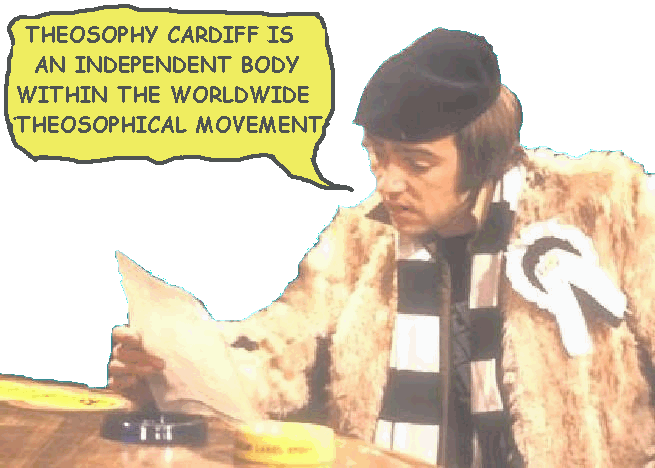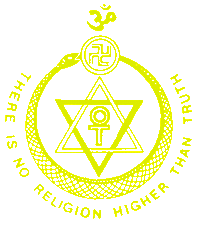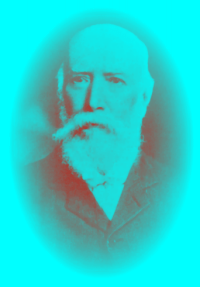VANGUARD
Phase
1 Standard Vanguard introduced July 1947
The Standard Vanguard was produced
by the Standard Motor Company
in
The Standard Vanguard has very little (in fact
nothing)
to do with Theosophy but we have found that
Theosophists and new enquirers do like pictures
of classic cars and we get a lot of positive
feedback.
You can find Theosophy Wales groups
in
Bangor, Cardiff, Conwy & Swansea
Theosophy Wales has no controlling
body
and is made up of independent groups
________________________
Theosophy
we
are pleased to present here an in depth manual of Theosophical ideas and
concepts by Alfred Percy Sinnett
who
was a major contributor to the development of modern Theosophy in the early
years of the Theosophical movement
Esoteric
Buddhism
By
Alfred
Percy Sinnett
Nirvana
Chapter 10
A COMPLETE assimilation of
esoteric teaching up to the point we have now reached will enable us to
approach the consideration of the subject which exoteric writers on Buddhism
have generally treated as the doctrinal starting-point of that religion.
Hitherto, for want of any better method of seeking out the true meaning of
Nirvana, Buddhist scholars have generally picked the world to pieces, and
examined its roots and fragments. One might as hopefully seek to ascertain the
smell of a flower by dissecting the paper on which its picture was painted. It
is difficult for minds schooled in the intellectual processes of physical
research - as all our Western nineteenth-century minds are, directly or
indirectly - to comprehend the first spiritual state above this life, that of
Devachan. Such conditions of existence are but partly for the understanding, a
higher faculty must be employed to realize them, and all the more is it
possible to force their meaning upon another mind by words. It is by first
awakening that higher faculty in his pupil, and then putting the pupil in a
position to observe for himself, that the regular occult teacher proceeds in
such a matter.
Now there are the usual seven
states of Devachan, suited to the different degrees of spiritual enlightenment
which the various candidates for that condition may obtain; there are rûpa
and arûpa locas in Devachan - that is to say, states which take
(subjective) consciousness of form and states which transcend these again. And
yet the highest Devachanic state in arûpa loca is not to be compared to
that wonderful condition of pure spirituality which is spoken of as Nirvana.
In the ordinary course of Nature during a round, when the spiritual monad has
accomplished the tremendous journey from the first planet to the seventh, and
has finished for the time being its existence there - finished all its
multifarious existences there, with their respective periods of Devachan
between each - the Ego passes into a spiritual condition, different from the
Devachanic state, in which, for periods of inconceivable duration, it rests
before resuming its circuit of the worlds. That condition may be regarded as
the Devachan of its Devachanic states - a sort of review thereof - a superior
state to those reviewed, just as the Devachanic state belonging to any one existence
on earth is a superior state to that of the half-developed spiritual
aspirations or impulses of affection of the earth-life. That period - that
intercyclic period of extraordinary exaltation, as compared to any that have
gone before, as compared even with the subjective conditions of the planets in
the ascending arc, so greatly superior to our own as these are - is spoken of
in esoteric science as a state of partial Nirvana. Carrying on imagination
through immeasurable vistas of the future, we must next conceive ourselves
approaching the period which would correspond to the intercyclic period of the
seventh round of humanity, in which men have become as gods. The very last,
most elevated, and glorious of the objective lives having been completed, the
perfected spiritual being reaches a condition in which a complete recollection
of all lives lived at any time in the past returns to him. He can look back
over the curious masquerade of objective existences, as it will seem to him
then, over the minutest details of any of these earth-lives among the number
through which he has passed, and can cognizance of them and of all things with
which they were in any way associated, for in regard to this planetary chain he
has reached omniscience. This supreme development of individuality is the great
reward which Nature reserves not only for those who secure it prematurely, so
to speak, by the relatively brief, but desperate and terrible struggles which
lead to adeptship, but also for all who, by the distinct preponderance of good
over evil in the character of the whole series of their incarnations, have
passed through the valley of the shadow of death in the middle of the fifth
round, and have worked their way up to it in the sixth and seventh rounds.
This sublimely blessed state is spoken of in esoteric science as the threshold
of Nirvana.
Is it worth while to go any further in speculation as to what follows? One may
be told that no state of individual consciousness, even though but a phase of
feeling already identified in a large measure with the general consciousness on
that level of existence, can be equal in spiritual elevation to absolute
consciousness in which all sense of individuality is merged in the whole. We
may use such phrases as intellectual counters, but for no ordinary mind -
dominated by its physical brain and brain-born intellect - can they have a
living signification.
All that words can convey is that Nirvana is a sublime state of conscious rest
in omniscience. It would be ludicrous, after all that has gone before, to turn
to the various discussions which have been carried on by students of exoteric
Buddhism as to whether Nirvana does or does not mean annihilation. Worldly
similes fall short of indicating the feeling with which the graduates of esoteric
science regard such a question. Does the last penalty of the law mean the
highest honour of the peerage? Is a wooden spoon the emblem of the most
illustrious pre-eminence in learning? Such questions as these but faintly
symbolize the extravagance of the question whether Nirvana is held by Buddhism
to be equivalent to annihilation. And in some, to us inconceivable, way the
state of para-Nirvana is spoken of as immeasurably higher than that of Nirvana.
I do not pretend myself to attach any meaning to the statement, but it may
serve to show what a very transcendental realm of thought the subject belongs.
A great deal of confusion of mind respecting Nirvana has arisen from statements
made concerning Buddha. He is said to have attained Nirvana while on earth; he
is also said to have foregone Nirvana, in order to submit to renewed
incarnations for the good of humanity. The two statements are quite
reconcilable. As a great adept, Buddha naturally attained to that which
is the great achievement of adeptship on earth, - the passing of his own
Ego-spirit into the ineffable condition of Nirvana. Let it not be supposed that
for any adept such a passage is one that can be lightly undertaken. Only stray
hints about the nature of this great mystery have reached me, but, putting
these together, I believe I am right in saying that the achievement in question
is one which only some of the high initiates are qualified to attempt, which
exacts a total suspension of animation in the body for periods of time compared
to which the longest cataleptic trances known to ordinary science are
insignificant, the protection of the physical frame from natural decay during
this period by means which the resources of occult science are strained to
accomplish; and withal it is a process involving a double risk to the continued
earthly life of the person who undertakes it. One of these risks is the doubt
whether, when once Nirvana is attained, the Ego will be willing to return. That
the return will be a terrible effort and sacrifice is certain, and will only be
prompted by the most devoted attachment, on the part of the spiritual traveler,
to the idea of duty in its purest abstraction. The second great risk is that
allowing the sense of duty to predominate over the temptation to stay, a temptation,
be it remembered, that is not weakened by the notion that any conceivable
penalty can attach to it - even then it is always doubtful whether the traveler
will be able to return. In spite of all this, however, there have been many
other adepts besides Buddha who have made the great passage, and for whom those
about them at such times have said the return to their prison of ignoble flesh,
- though so noble ex hypothesi compared to most such tenements, - has
left them paralyzed with depression for weeks. To begin the weary round of
physical life again, to stoop to earth after having been in Nirvana, is too
dreadful a collapse.
Buddha’s renunciation was in some inexplicable manner greater again, because he
not merely returned from Nirvana for duty’s sake, to finish the earth-life in
which he was engaged as Gautama Buddha, but when all the claims of duty had
been fully satisfied, and his right of passage into Nirvana for incalculable
æons entirely earned under the most enlarged view of his earthly mission, he
gave up that reward, or rather postponed it for an indefinite period, to
undertake a supererogatory series of incarnations for the sake of humanity at
large. How is humanity being benefited by this renunciation? it may be asked.
But the question can only be suggested in reality by that deep-seated habit, we
have most of us acquired, of estimating benefit by a physical standard, and
even in regard to this standard of taking very short views of human affairs. No
one will have followed me through the foregoing chapter on the Progress of
Humanity without perceiving what kind of benefit it would be that Buddha would
wish to confer on men. That which is necessarily for him the great question in
regard to humanity, is how to help as many people as possible across the great
critical period of the fifth round.
Until that time everything is a mere preparation for the supreme struggle, in
the estimation of an adept, all the more of a Buddha. The material welfare of
the existing generation is not even as dust in the balance of such a
calculation; the only thing of importance at present is, to cultivate those
tendencies in mankind which may launch as many Egos as possible upon such a
Karmic path that the growth of their spirituality in future births will be promoted.
Certainly it is the fixed conviction of esoteric teachers - of the adept
co-workers with Buddha - that the very process of cultivating such spirituality
will immensely reduce the sum of even transitory human sorrow. And the
happiness of mankind, even in any one generation only, is by no means a matter
on which esoteric science looks with indifference. So the esoteric policy is
not to be considered as something so hopelessly up in the air that it will
never concern any of us who are living now. But there are seasons of good and
bad harvest for wheat and barley, and so also for the desired growth of
spirituality amongst men; and in Europe, at all events, going by the experience
of former great races, at periods of development corresponding to that of our own
now, the great present uprush of intelligence in the direction of physical and
material progress is not likely to bring on a season of good harvests for
progress of the other kind. For the moment the best chance of doing good in
countries where the uprush referred to is most marked, is held to lie in the
possibility that the importance of spirituality may come to be perceived by
intellect, even in advance of being felt, if the attention of that keen though
unsympathetic tribunal can but be secured. Any success in that direction to
which these explanations may conduce, will justify the views of those - but a
minority - among the esoteric guardians of humanity who have conceived that it
is worth while to have them made.
So Nirvana is truly the key-note of esoteric Buddhism, as of the hitherto
rather misdirected studies of external scholars. The great end of the whole
stupendous evolution of humanity is to cultivate human souls so that they shall
be ultimately fit for that as yet inconceivable condition. The great triumph of
the present race of planetary spirits who have reached that condition
themselves, will be to draw thither as many more Egos as possible. We are far
as yet from the era at which we may be in serious danger of disqualifying
ourselves definitively for such progress, but it is not too soon even now to
begin the great process of qualification, all the more as the Karma which will
propagate itself through successive lives in that direction will carry its own
reward with it, so that an enlightened pursuit of our highest interests, in the
very remote future, will coincide with the pursuit of our immediate welfare in
the next Devachanic period, and the next rebirth.
Will it be argued that if the cultivation of spirituality is the great purpose
to be followed, it matters little whether men pursue it along one religious
pathway or another? This is a mistake which, as explained in a former chapter,
Buddha, as Sankaracharya, set himself especially to combat - viz the early
Hindu belief that moksha can be attained by bhakti irrespective
of gnyanam - that is, that salvation is obtainable by devout practices
irrespective of knowledge of eternal truth. The sort of salvation we are
talking about now is not escape from a penalty, to be achieved by cajoling a celestial
potentate - it is a positive and not a negative achievement - the ascent into
regions of spiritual elevation so exalted that the candidate aiming at them is
claiming that which we ordinarily describe as omniscience. Surely it is plain,
from the way Nature habitually works, that under no circumstances will a time
ever come when a person, merely by reason of having been good, will suddenly
become wise. The supreme goodness and wisdom of the sixth-round man,
who, once becoming that, will assimilate by degrees the attributes of divinity
itself, can only be grown by degrees themselves, and goodness alone,
associated, as we so often find it, with the most grotesque religious beliefs,
cannot conduct a man to more than Devachanic periods of devout but unintelligent
rapture, and in the end, if similar conditions are reproduced through many
existences, to some painless extinction of individuality at the great crisis.
It is by a steady pursuit of, and desire for, real spiritual truth, not by an
idle, however well-meaning acquiescence in the fashionable dogmas of the
nearest church, that men launch their souls into the subjective state, prepared
to imbibe real knowledge from the latent omniscience of their own sixth
principles, and to re-incarnate in due time with impulses in the same
direction. Nothing can produce more disastrous effects on human progress, as
regards the destiny of individuals, than the very prevalent notion that one
religion followed out in a pious spirit, is as good as another, and that if such
and such doctrines are perhaps absurd when you look into them, the great
majority of good people will never think of their absurdity, but will recite
them in a blamelessly devoted attitude of mind. One religion is by no means as
good as another, even if all were productive of equally blameless lives. But I
prefer to avoid all criticism of specific faiths, leaving this volume a simple
and inoffensive statement of the real inner doctrines of the one great religion
of the world which -presenting as it does in its external aspects a bloodless
and innocent record - has thus been really productive of blameless lives
throughout its whole existence. Moreover, it would not be by a servile
acceptance even if its doctrines that the development of true spirituality is
to be cultivated. It is by the disposition to seek truth, to test and examine
all which presents itself as claiming belief, that the great result is to be
brought about. In the East, such a resolution in the highest degree leads to
chelaship, to the pursuit of truth, knowledge, by the development of inner
faculties by means of which it may be cognized with certainty. In the west, the
realm of intellect, as the world is mapped out at present, truth unfortunately
can only be pursued and hunted out with the help of many words and much
wrangling and disputation. But at all events it may be hunted, and, if it is
not finally captured, the chase on the part of the hunters will have engendered
instincts that will propagate themselves and lead to results hereafter.

Standard
Vanguard Brochure Cover Late 1940s
In
1949 you could buy a Vanguard for £671 (including purchase tax)
_____________________________
More Theosophy Stuff
with these links
Cardiff Theosophical
Society meetings are informal
and there’s always a
cup of tea afterwards
The
Cardiff Theosophical Society Website

1948
Standard Vanguard
The
National Wales Theosophy Website
Bangor,
Cardiff, Conwy & Swansea
If you
run a Theosophy Group, please feel free
to use
any of the material on this site

1953
Standard Vanguard Pickup
The Most Basic Theosophy
Website in the Universe
A quick overview of Theosophy
and the Theosophical Society
If you run a Theosophy Group you
can use this as an introductory handout.
Theosophy Cardiff’s Instant Guide

Phase
II Standard Vanguard 1953 -55
Theosophical Movement in Wales
as it separates into independent
groups that run do their own show
One liners and quick explanations
H P Blavatsky
is usually the only
Theosophist
that most people have ever
heard
of. Let’s put that right
The Voice of the Silence Website

Phase
III Standard Vanguard Circa 1959
An
Independent Theosophical Republic
Links
to Free Online Theosophy
Study
Resources; Courses, Writings,
The main criteria for the inclusion of
links on this site is that they have some
relationship (however tenuous) to Theosophy
and are lightweight, amusing or entertaining.
Topics include Quantum Theory and Socks,
Dick Dastardly and Legendary Blues Singers.
A selection of articles on Reincarnation
Provided in response to the large
number of enquiries we receive at
Cardiff Theosophical Society on this subject

Phase
III Standard Vanguard Circa 1962
The Voice of the Silence Website
This is for
everyone, you don’t have to live
in Wales to
make good use of this Website

A
Phase I 1949 Standard Vanguard with sidelights
A Vanguard tested by The Motor magazine in 1949
had a top speed of 78.7 mph
(126.7 km/h) and could accelerate from 0-60 mph
(97 km/h) in 21.5 seconds.
A fuel consumption of 22.9 miles per imperial
gallon
No
Aardvarks were harmed in the

Phase
III Standard Vanguard Early 60s
Within the British Isles, The Adyar Theosophical Society
has Groups in;
Bangor*Basingstoke*Billericay*Birmingham*Blackburn*Bolton*Bournemouth
Bradford*Bristol*Camberley*Cardiff*Chester*Conwy*Coventry*Dundee*Edinburgh
Folkstone*Glasgow*Grimsby*Inverness*Isle of
Man*Lancaster*Leeds*Leicester
Letchworth*London*Manchester*Merseyside*Middlesborough*Newcastle upon
Tyne
North Devon*Northampton*Northern Ireland*Norwich*Nottingham
Perth*Republic of Ireland*Sidmouth*Southport*Sussex*Swansea*Torbay
Tunbridge Wells*Wallasey*Warrington*Wembley*Winchester*Worthing
The Spiritual Home of Urban Theosophy
The Earth Base for Evolutionary Theosophy
_____________________
Concerns about the fate of the
wildlife as
Tekels Park is to be Sold to a
Developer
Concerns are raised about the fate of
the wildlife as
The Spiritual Retreat, Tekels Park in
Camberley,
Surrey, England is to be sold to a
developer.
Tekels Park is a 50 acre woodland
park, purchased
for the Adyar Theosophical Society in England
in 1929.
In addition to concern about the
park, many are
worried about the future of the Tekels Park
Deer
as they are not a protected species.
Anyone planning a “Spiritual” stay at
the
Tekels Park Guest House should be
aware of the sale.
It doesn’t require a Diploma in Finance
and even someone with a Diploma in
Astral Travel will know that this is a
bad time economically to sell Tekels Park
____________________
A
B
C
D
EFG
H
IJ
KL
M
N
OP
QR
S
T
UV
WXYZ
Complete Theosophical Glossary in Plain Text Format
1.22MB
Quick
Explanations with Links to More Detailed Info
What is Theosophy ? Theosophy Defined (More Detail)
Three Fundamental Propositions Key Concepts of Theosophy
Cosmogenesis
Anthropogenesis
Root Races
Karma
Ascended Masters After Death States Reincarnation
The Seven Principles of Man Helena Petrovna Blavatsky
Colonel Henry Steel Olcott William Quan Judge
The Start of the Theosophical Society
History of the Theosophical Society
Theosophical Society Presidents
History of the Theosophical Society in Wales
The Three Objectives of the Theosophical Society
Explanation of the Theosophical Society Emblem
Glossaries of Theosophical Terms
An Outstanding Introduction to Theosophy
By a student of Katherine Tingley
Elementary Theosophy Who is the Man? Body and Soul
Body, Soul and Spirit Reincarnation Karma

Standard
Vanguard Promotional Literature Late 1940s
What Theosophy Is From the Absolute to Man
The Formation of a Solar System The Evolution of Life
The Constitution of Man After Death Reincarnation
The Purpose of Life The Planetary Chains
The Result of Theosophical Study
An Outline of Theosophy
Charles Webster Leadbeater
Theosophy - What it is How is it Known?
The
Method of Observation General
Principles
The Three Great Truths Advantage
Gained from this Knowledge
The Deity
The
Divine Scheme The
Constitution of Man
The True Man
Reincarnation The Wider Outlook
Death Man’s Past and
Future Cause and Effect

Helena Petrovna Blavatsky 1831 – 1891
The Founder of Modern Theosophy
Index of Articles by
By
H P Blavatsky
Is the Desire to Live Selfish?
Ancient Magic in Modern Science
Precepts Compiled by H P Blavatsky
Obras Por H P Blavatsky
En Espanol
Articles about the Life of H P Blavatsky

Standard Vanguard Estate
Circa 1952
Try these if you are looking
for a local
Theosophy Group or Centre
UK Listing of Theosophical Groups
Please tell us about your UK Theosophy Group
___________________
into categories and
presented according to relevance of website.
Web Directory
- Add Link - Submit Article - Online Store - Forum

Standard
Vanguard Van Circa 1952
______________________

General pages about Wales, Welsh History
and The History of Theosophy in Wales
Wales is a
Principality within the United Kingdom and has an eastern
border with
England. The land area is just over 8,000 square miles.
Snowdon in North
Wales is the highest mountain at 3,650 feet.
The coastline is
almost 750 miles long. The population of Wales
as at the 2001 census is 2,946,200.
________________

Bangor Conwy & Swansea Lodges are
members
of the Welsh Regional Association
(Formed 1993).
Theosophy Cardiff separated from the
Welsh Regional
Association in March 2008 and became an independent
body within the Theosophical Movement in March 2010
High
Drama & Worldwide Confusion
as
Theosophy Cardiff Separates from the
Welsh
Regional Association (formed 1993)
Theosophy Cardiff cancels its Affiliation
to the Adyar Based Theosophical Society
Cardiff, Wales, UK, CF24 – 1DL




